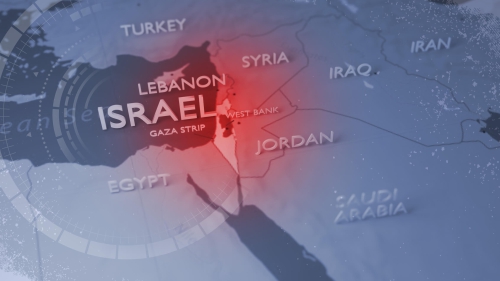Do we really promote Free Commerce?
 |
Republican administrations always tout the free market, but when it clashes with the perceived interests of the national security state-of which they are so fond-it gets outgunned. The most recent example is the Bush administration's threats against a liquefied natural gas pipeline that would run from Iran through Pakistan to India. The administration wants to put the screws to anything that would benefit Iran-a member of President Bush's "axis of evil." A less jingoistic and more enlightened administration would realize that through free commerce among the rival groups in this region, this pipeline would help poor countries to develop economically, and at the same time reduce the likelihood of conflict and enhance U.S. security in the process.
South Asia, the proposed route of the pipeline, is probably the most dangerous region in the world. In recent years, archrivals India and Pakistan have both tested nuclear weapons and come close to nuclear war. Pakistan supports guerillas in the disputed Indian region of Kashmir, a potential flashpoint for nuclear escalation.
| To stop the proposed Iran-Pakistan-India natural gas pipeline from being built, the Bush administration is threatening India with the Iran-Libya Sanctions Act |
Although India primarily wants the so-called "peace pipeline" to deliver badly needed energy to a rapidly growing economy, it sees the pipeline's role in improving relations with Pakistan as a major side benefit. Economic links among potential adversaries can create peace lobbies in those countries because much money can be lost if a war starts. Thus, commerce may very well reduce the chances of war-in this case, an Indo-Pakistani nuclear war with dramatic global implications.
International commerce can also open up despotic regimes to Western ideas, including those of liberty and human rights. This happens slowly over time, however, and the Bush administration has little patience for the approach. In fact, the administration desires more rapid results through coercion-both economic and military. The United States has long restricted commerce with Iran and is apparently readying plans to attack that country. According to investigative reporter Seymour Hersh, administration planning for an attack on Iran is in the advanced stages and has included U.S. Special Forces missions on Iranian territory to identify key targets.
Certainly, Iran has an autocratic regime that has committed human rights abuses, likely has a secret program to develop nuclear weapons, and has sponsored terrorist attacks. But the regime is only a limited threat to U.S. security. Recently, Iran's sponsorship of terrorist attacks has been against Israel, not the United States. Furthermore, even if the worst case comes to pass-Iran gets a few nuclear weapons-the U.S. arsenal of thousands of nuclear warheads would most likely deter an Iranian nuclear attack on America (that is, if Iran ever produced a missile that could deliver a nuclear payload at such great distances). The U.S. arsenal deterred radical Maoist China from launching a nuclear attack on the United States after the Chinese obtained atomic weapons in the 1960s. The primary goal of even ideologically zealous regimes is self-preservation; getting their home countries incinerated is counterproductive to the spread of their ideology.
Any military attack designed to target Iranian nuclear-related facilities is unlikely to destroy them all-because U.S. intelligence on such installations is limited-and is likely to deliver a pro-Western Iranian population back into the arms of the thuggish regime. Economic coercion against Iran is also likely to have a counterproductive result. Forty-five years of economic sanctions against Fidel Castro's regime in Cuba have merely allowed him to rally the Cuban population against the "Yankee oppressor." Although counterintuitive, allowing free commerce with both Iran and Cuba would have gradually allowed Western products, services, and ideas to chip away at the oppressive ideologies of both governments.
But the implications of U.S. economic coercion against the pipeline are far broader than their effects on Iran. To stop the proposed Iran-Pakistan-India natural gas pipeline from being built, the Bush administration is threatening India with the Iran-Libya Sanctions Act, which allows the president to penalize any company that invests more than $20 million per year in Iran's energy sector. This sanction is called an extraterritorial measure, because it not only penalizes the target nation, but third nations and companies that have commercial relationships with the target nation, as well. Such measures are especially pernicious to the international commercial system.
The Bush administration's refusal to look at the big picture and realize that free commerce is also the best national security policy is puzzling and troubling. The administration has realized the danger to the world of nuclear war in South Asia and has supported the Indo-Pakistani peace process. Simultaneously, however, it is also trying to block the peace pipeline, which would foster economic cooperation between the two bitter adversaries, in order to carry out a petty vendetta against an Iranian regime that poses only a limited threat to U.S. security. Clearer thinking about U.S. security is needed.
Ivan Eland is the Director of the Center on Peace and Liberty at the Independent Institute in Oakland, California and author of the book, Putting "Defense" Back into U.S. Defense Policy: Rethinking U.S. Security in the Post-Cold War World.
 |
New from Ivan Eland!
THE EMPIRE HAS NO CLOTHES: U.S. Foreign Policy Exposed
Most Americans don't think of their government as an empire, but in fact the United States has been steadily expanding its control of overseas territories since the turn of the twentieth century. In The Empire Has No Clothes, Ivan Eland, a leading expert on U.S. defense policy and national security, examines American military interventions around the world from the Spanish-American War to the invasion and occupation of Iraq. Buy It Today >>
Topics: Conflicts And War, Foreign Policy, George W. Bush, India, Iran, Pakistan
Views: 3158
Related Suggestions
















